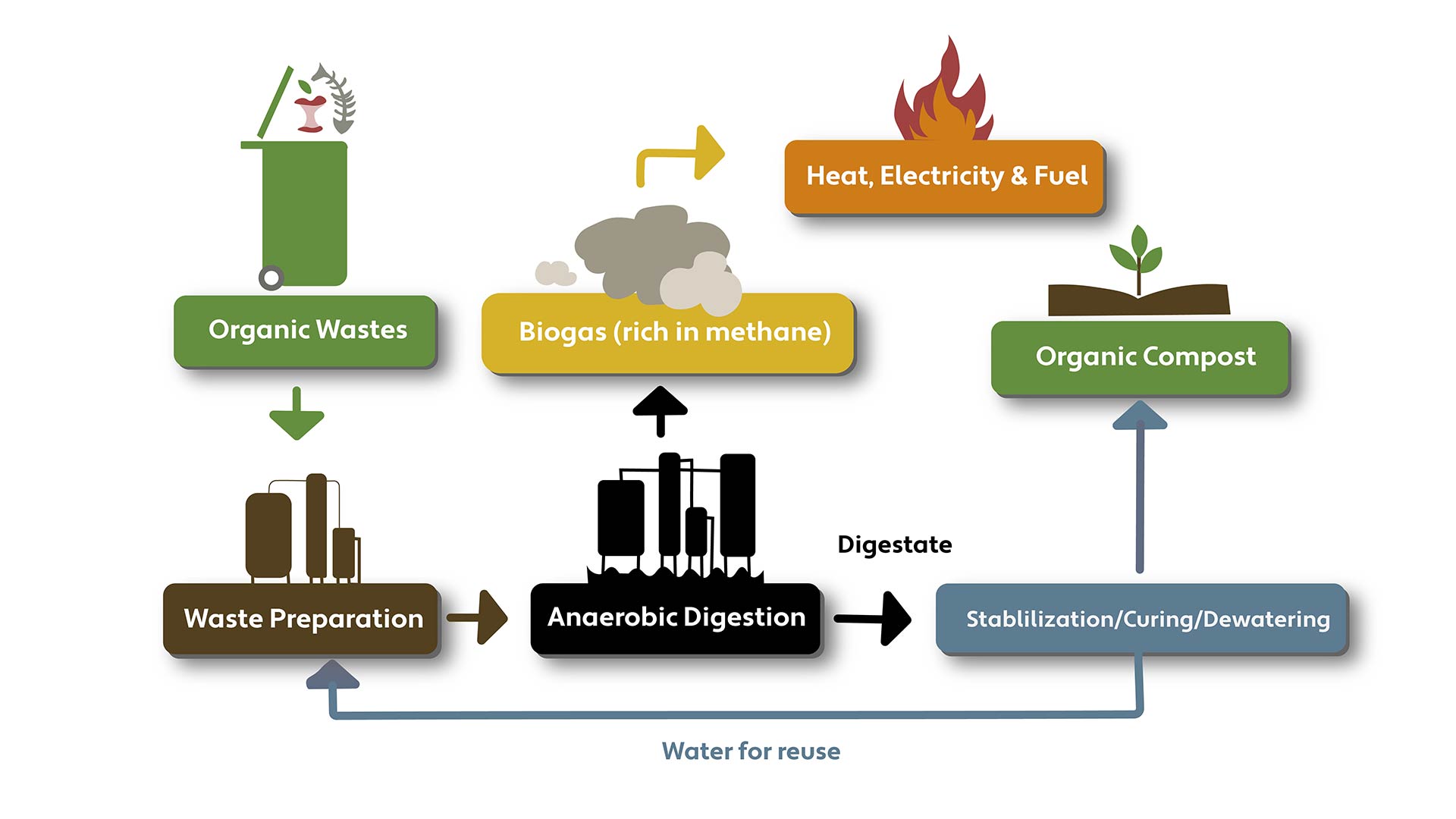Organic waste may be part of the future of renewable energy in Minnesota as the Agricultural Utilization Research Institute (AURI) aims to support and foster the development of anaerobic digestion systems in the state through a new industry thought leader initiative.
There has been a concerted effort throughout the last decade to implement programs reducing organic waste. The United States Department of Agriculture and the United States Environmental Protection Agency have a joint goal of reducing the country’s food waste by 50 percent by the year 2030. Meanwhile, Minnesota state law also established a 2030 goal for the seven metro-area counties to recycle or compost 75 percent of solid organic waste.
The reduction of organic waste from landfills has two positive effects: it reduces a need for landfills and slows the growth of greenhouse gas emissions. Food waste in landfills is a known producer of methane and responsible for at least 2.6% of all U.S. greenhouse gas emissions.
“Food waste becomes an important feedstock for anaerobic digestion,” says Rod Larkins, senior director of science and technology at AURI. “It is the current technology of choice for converting food waste to energy and other important coproducts.”
Anaerobic digestion systems allow producers to divert organic waste sources away from landfills and convert it into renewable energy. Using a microbial process, anaerobic digestion breaks down biodegradable materials to produce methane and other gases.
This biogas can replace a fossil fuel derived natural gas when burned in a furnace or purified to power a generator or adding it to the natural gas pipeline. Additionally, byproducts of anaerobic digestion systems include livestock bedding and fertilizer.
The City of St. Cloud is already utilizing anaerobic digestion to produce energy from waste solids recovered from their wastewater system as well as byproducts from local industries such as breweries and food processing facilities. Currently treating wastewater for over 120,000 people in six cities, biogas from its anaerobic digestion system is cleaned before use as fuel for the facility’s generator. The City of St. Cloud also sells solid byproducts from the anaerobic digestion process as commercial grade fertilizer. Most of the product primarily ends up in the Red River Valley region.
“We have used our methane from anaerobic digestion for our boilers to heat our facilities. Next, we used it to fuel our generators,” says Emma Larson, assistant public utilities director for the City of St. Cloud. “It would be a huge leap forward if we could get this on the natural gas grid.”
City of St. Cloud Public Services Director Tracy Hodel agrees, “no one is doing this in Minnesota at the moment and it is a learning curve. It is an exciting opportunity.”
AURI is launching a new working group of technology and commercialization experts to support the development of sites using anaerobic digestion in Minnesota.
The group will focus on identifying potential anaerobic digestion projects and connecting them with resources. Larkins’ top goals include developing a catalogue of waste streams and sites around the state as well as establishing pilot sites to define best practices in processing biogas for the natural gas pipeline.
There is potential for this work to have a large impact on the food and ag industries as well as for the renewable energy sector. Anaerobic digestion is an opportunity to recover food and ag waste by giving it a new life as biogas and other byproducts. It can provide ag with more sustainable and profitable options when dealing with waste.
This is not the first time AURI has engaged in the pursuit of anaerobic digestion in Minnesota. Previous, AURI projects in this area include a study of the feasibility of making methane and fertilizer from corn solids left over from ethanol production and the joint publication of an anaerobic digester casebook for food processors with the Energy Center of Wisconsin.
AURI’s new anaerobic digestion working group will not be alone in its efforts. It is a topic of exploration for two other AURI initiatives: the MN Renewable Energy Roundtable and the Food Waste Industry Thought Leaders group.
